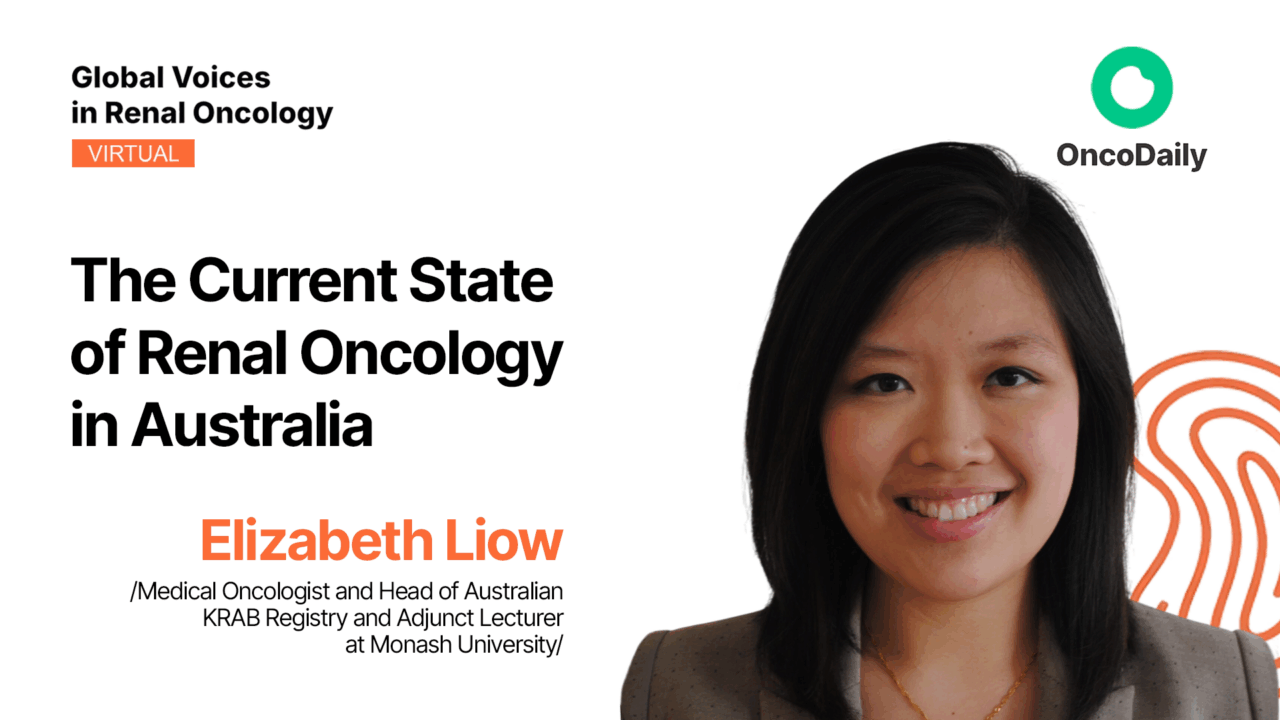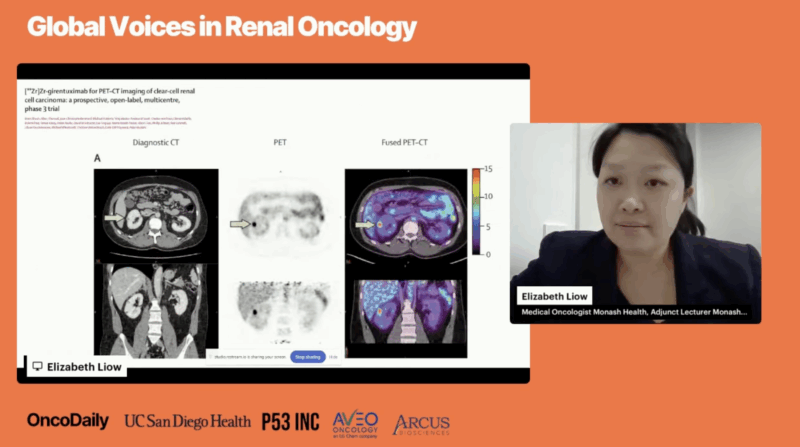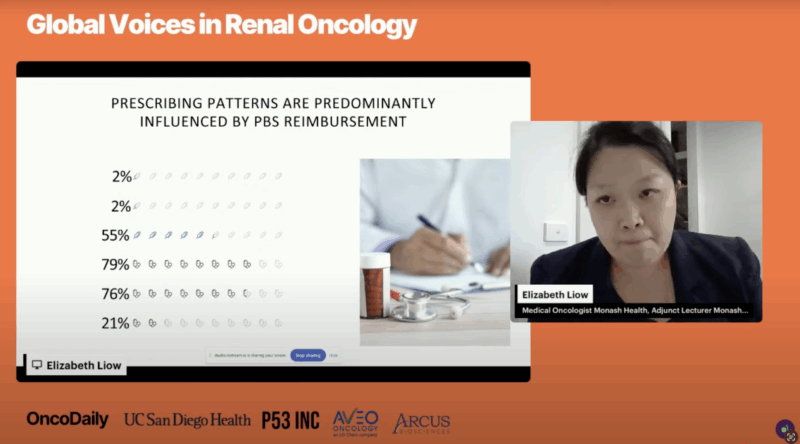At Global Voices in Renal Oncology (VIRO) 2025, Dr. Elizabeth Liow, Medical Oncologist and Head of the Australian KRAB Registry, delivered an in-depth overview of the current landscape of kidney cancer in Australia. Her presentation highlighted both the remarkable innovations in diagnosis and treatment, as well as the real-world challenges facing patients and clinicians across the country.
Dr. Liow emphasized the pivotal role of the KRAB Registry, which now tracks data from over 1,000 kidney cancer patients nationwide. This registry provides detailed insights into treatment sequencing, patient outcomes, and eligibility for emerging therapies such as Keynote-564, enabling clinicians and policymakers to make decisions grounded in real-world evidence.
She highlighted how advances in diagnostics are transforming patient care. Carbonic anhydrase IX-targeted PET scans and novel small molecule peptides now allow clinicians to detect tumors with high sensitivity and speed, reducing the need for invasive biopsies, especially in patients where traditional sampling carries risk. These developments are helping clinicians make earlier and more accurate treatment decisions.
Precision medicine is also becoming a mainstream part of kidney cancer care in Australia. Through a national genomic profiling program, patients with metastatic disease have their tumor specimens analyzed and reviewed by molecular tumor boards, providing actionable insights that inform clinical decisions. This initiative bridges the gap between research discoveries and routine patient care and ensures that advanced treatments are targeted to those most likely to benefit.
Dr. Liow discussed how innovations in surgery and non-surgical treatments are improving outcomes. Robotic nephron-sparing surgeries are becoming widely adopted, while stereotactic radiation offers non-invasive treatment options for patients who cannot undergo surgery. Australian centers are also contributing to early drug development, including trials with CAR-T therapies and cancer vaccines, which ensure patients have access to cutting-edge treatments within clinical trials and practice.
Access and equity remain significant challenges. Despite a robust healthcare system, delays in PBS reimbursement and geographic disparities affect patient outcomes. Dr. Liow illustrated how postcode can determine access to the latest therapies, highlighting the importance of national data to inform policy and optimize care pathways for all patients.
By leveraging the KRAB Registry, clinicians can identify gaps in care, evaluate real-world treatment effectiveness, and plan for the next generation of kidney cancer therapies. The registry also provides population-level insights, allowing policymakers to understand the impact of new treatments on patient survival and quality of life.
Dr. Liow’s session offered a comprehensive view of kidney cancer in Australia, showing how innovation, real-world data, and national collaboration are improving patient outcomes while underscoring ongoing challenges in access, equity, and timely implementation of new therapies.
Join us in the conversation.




